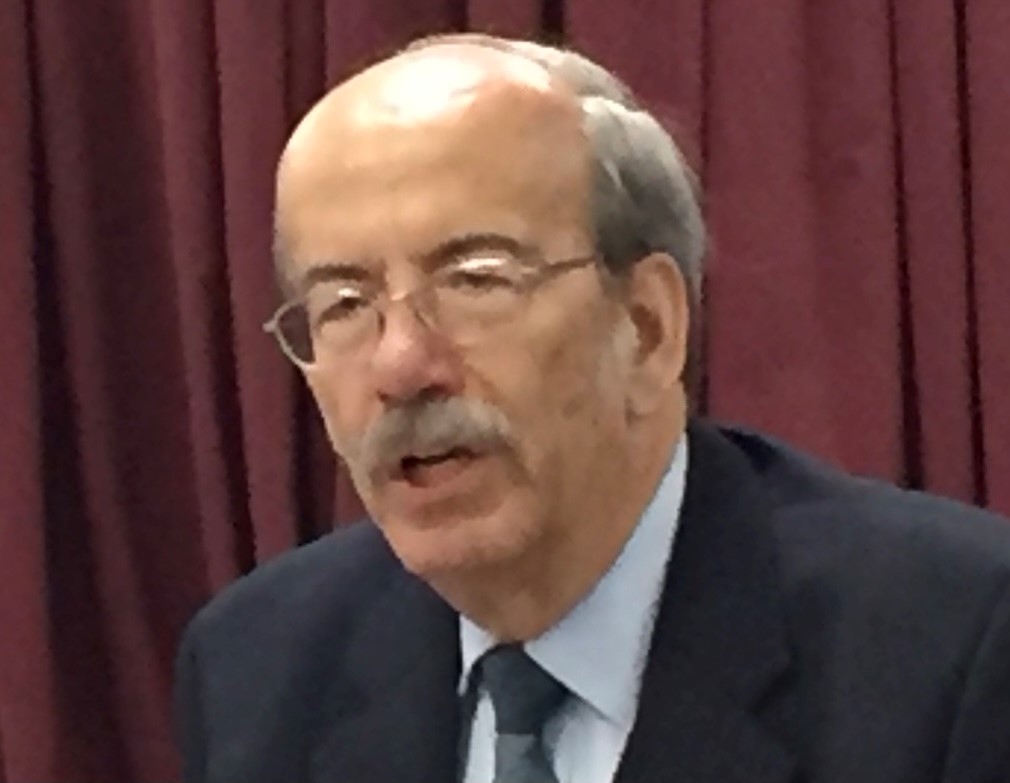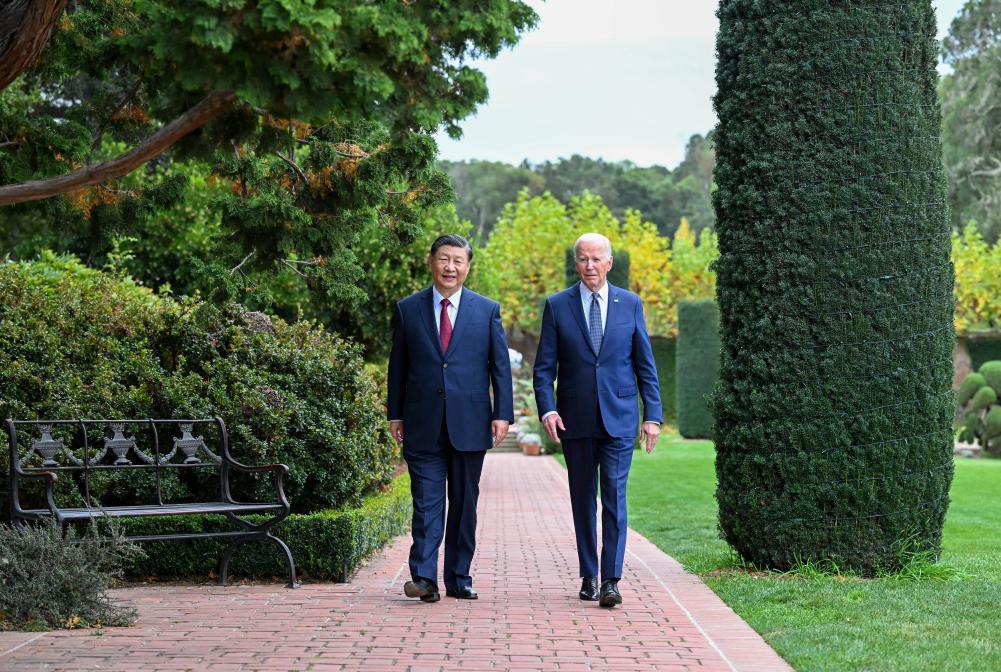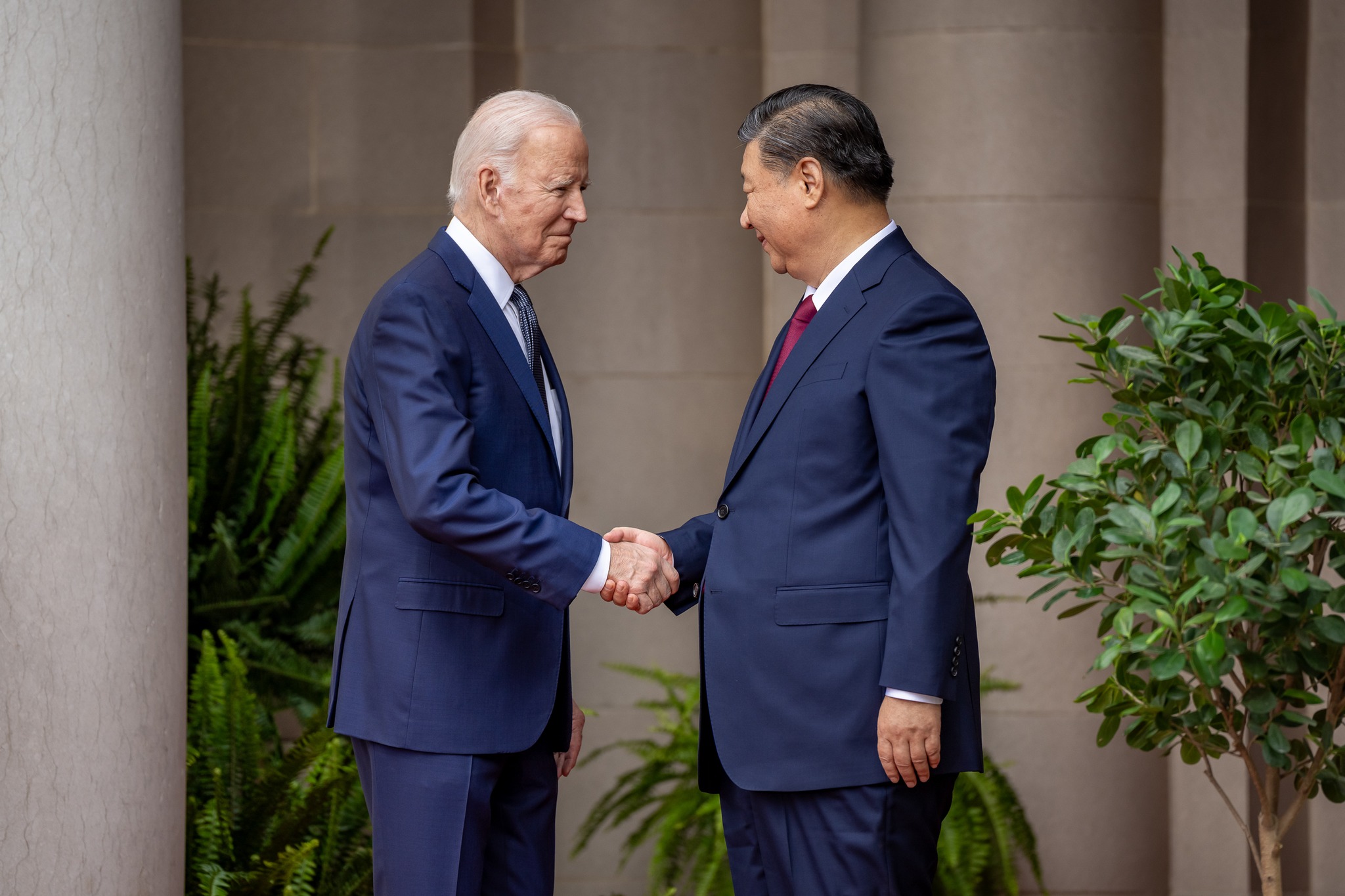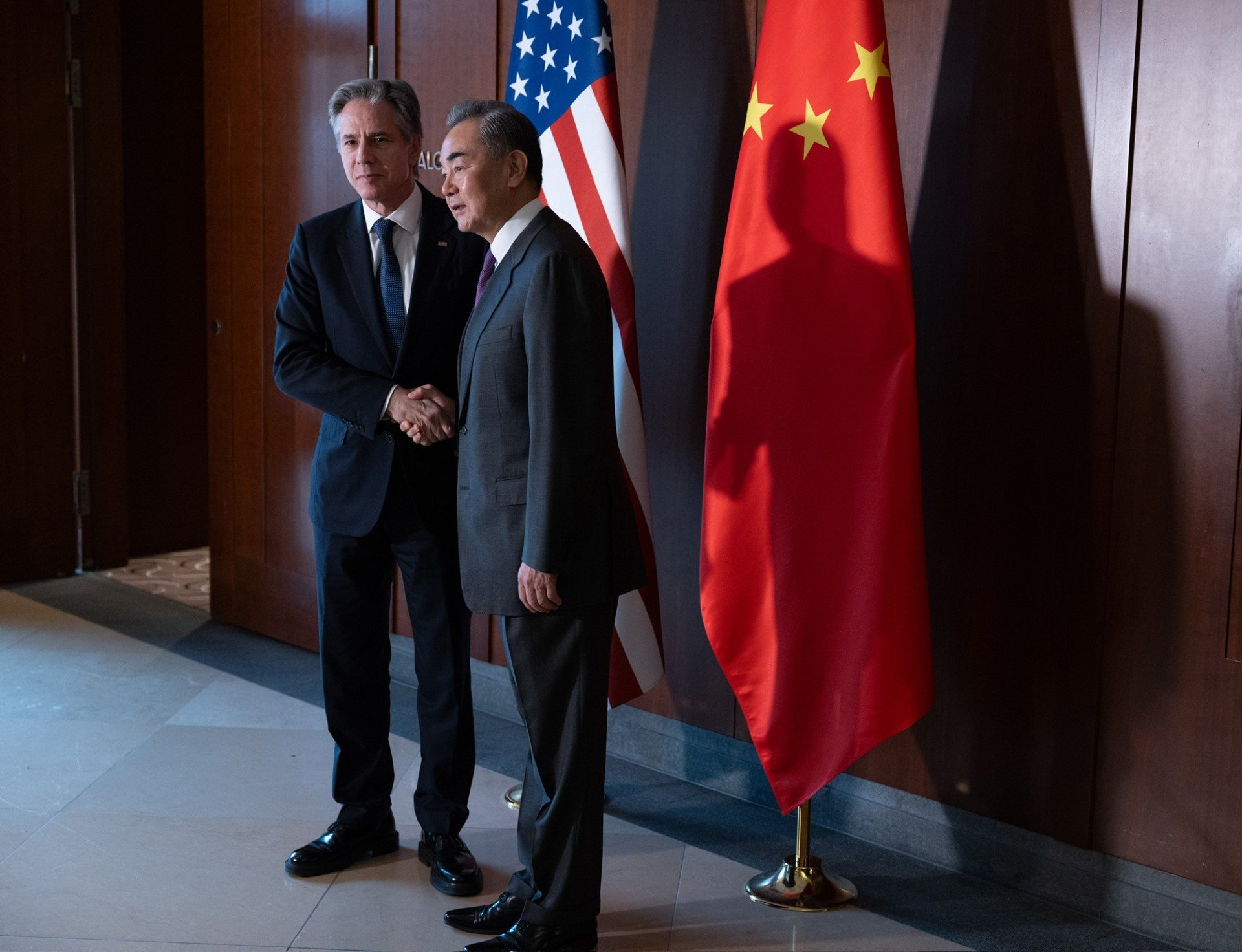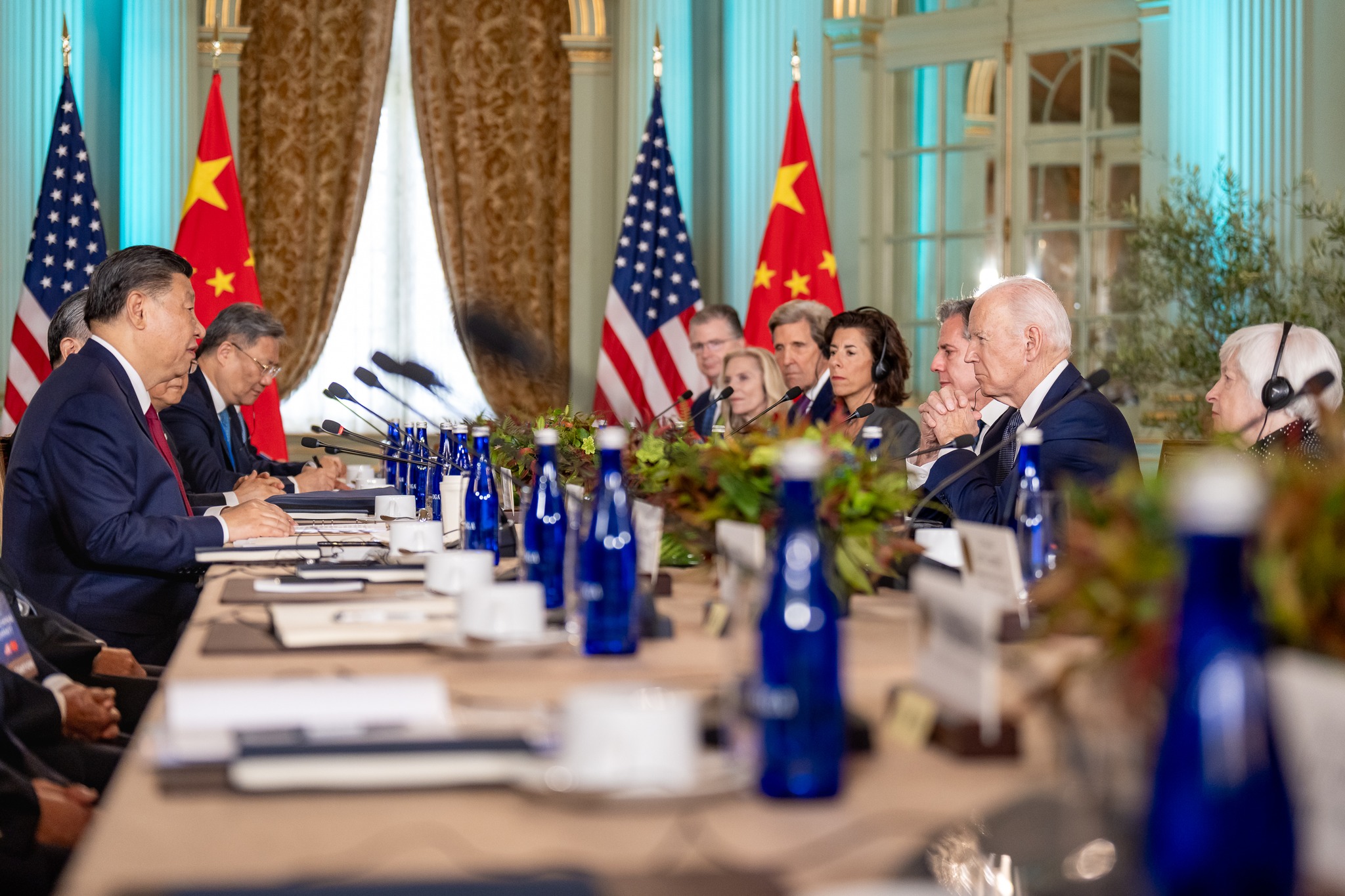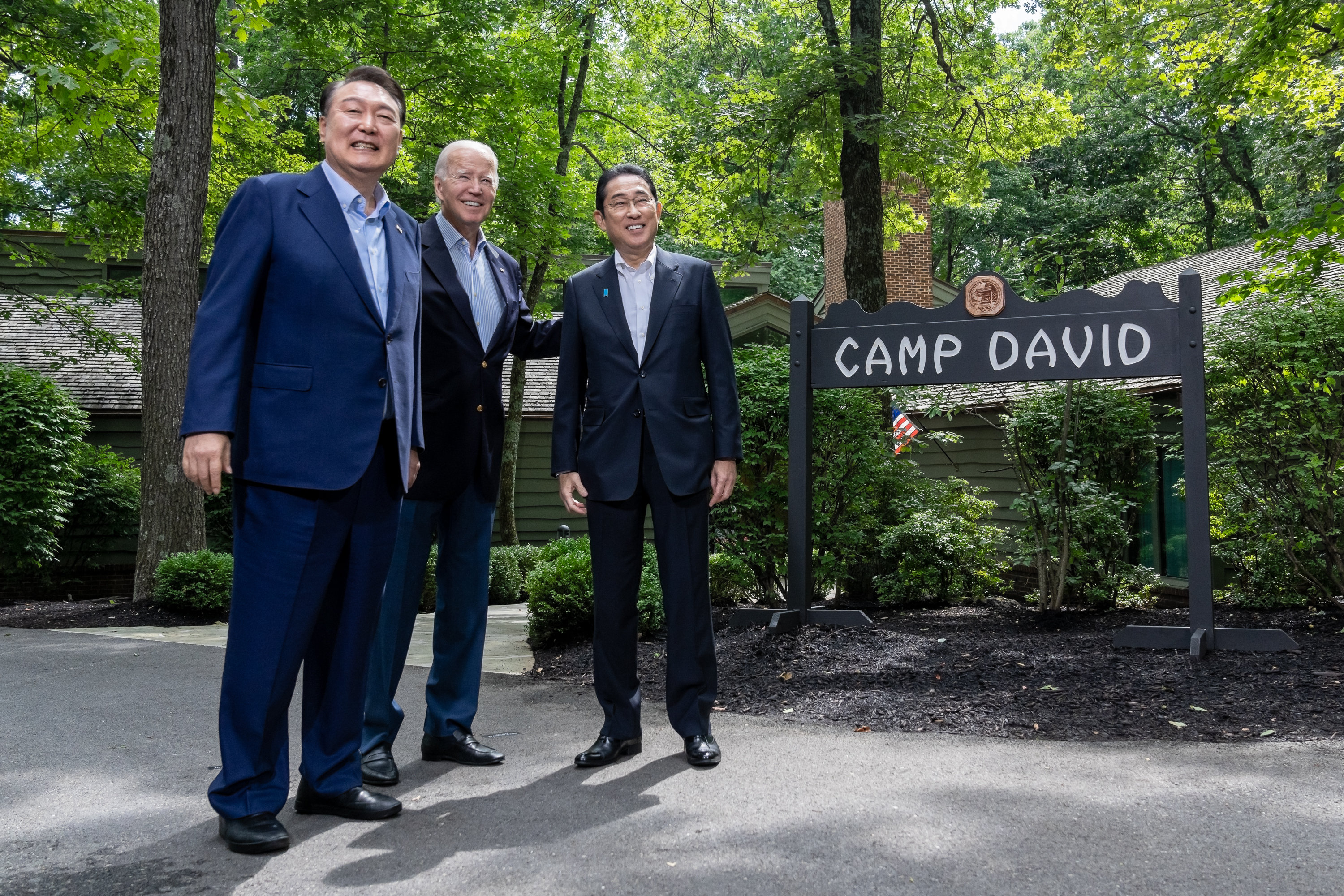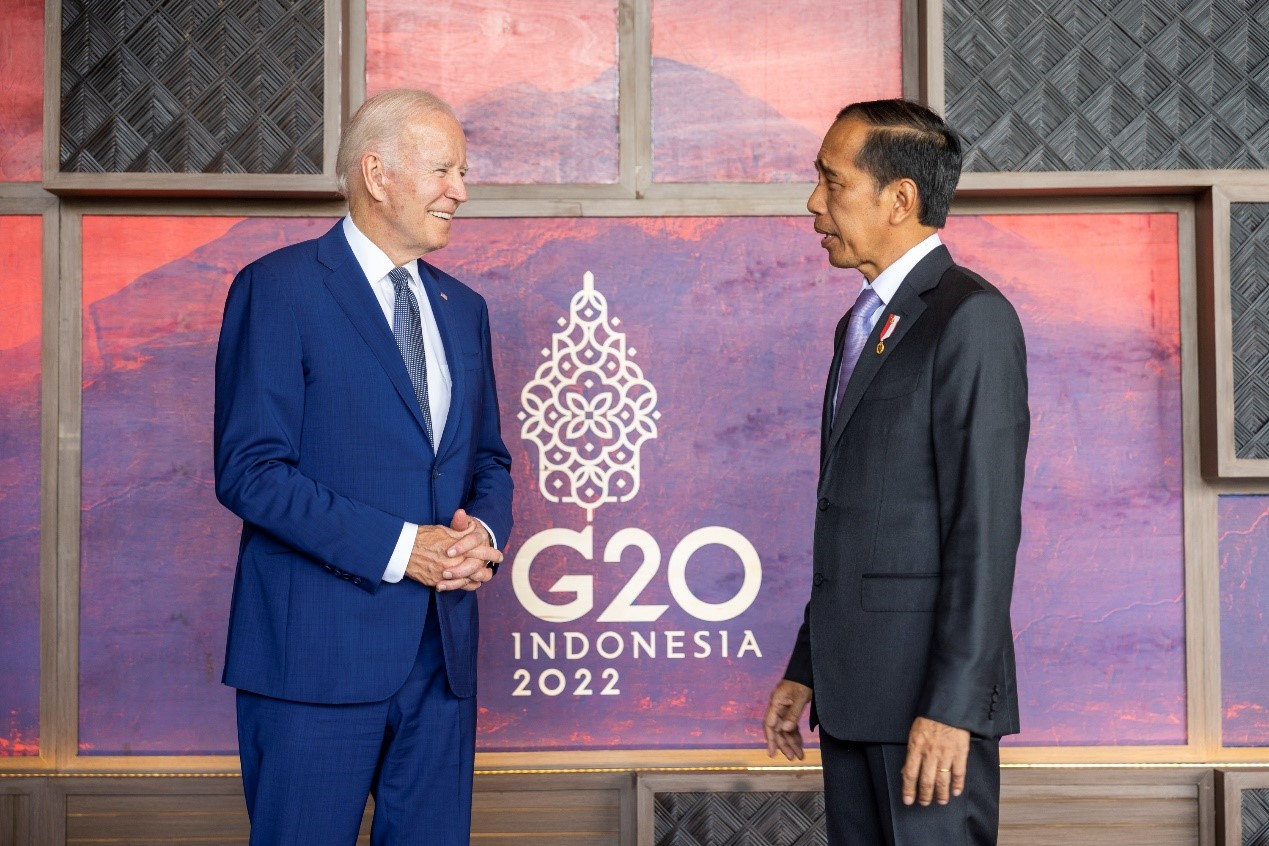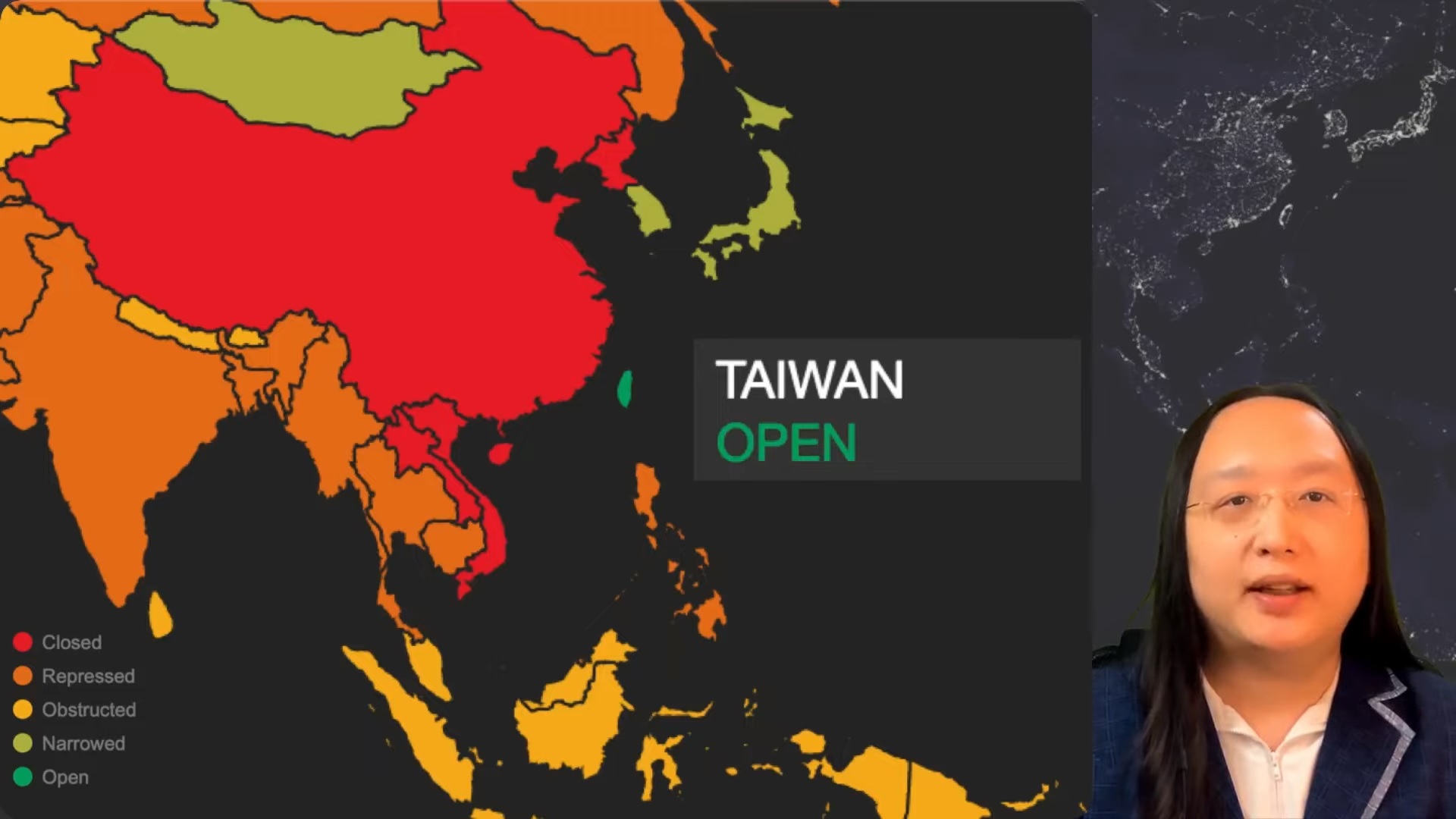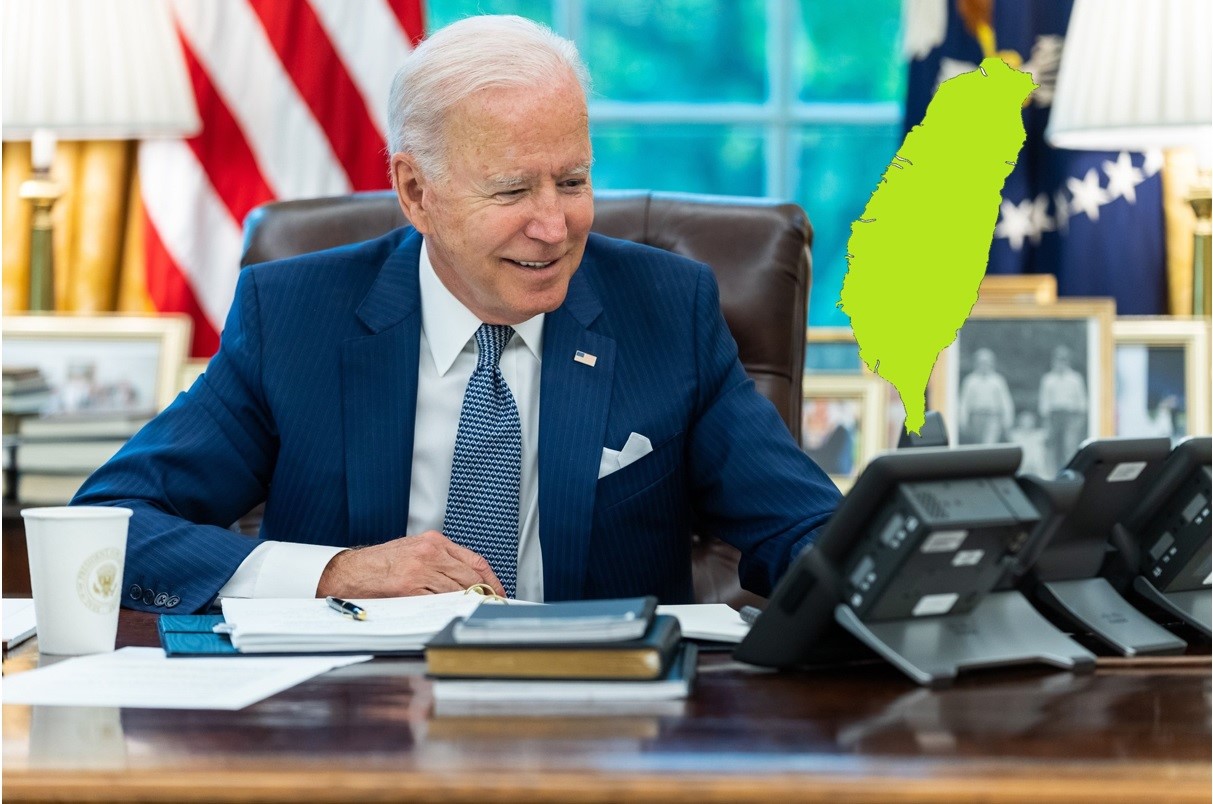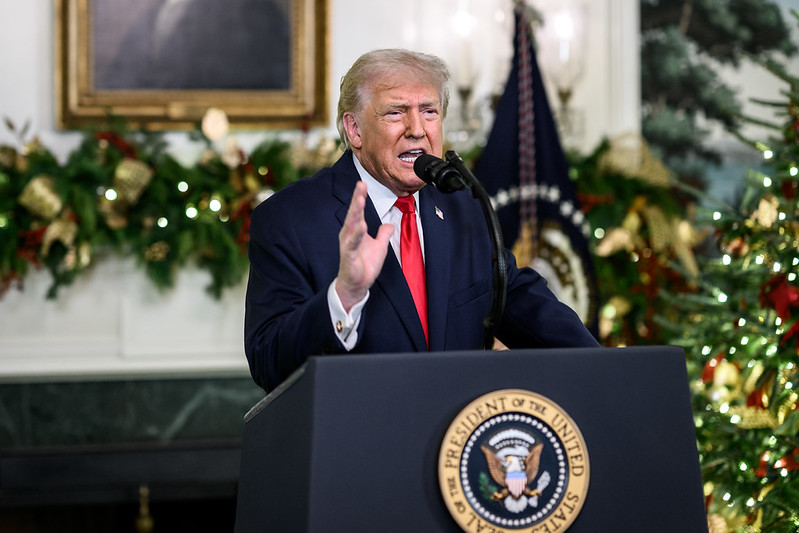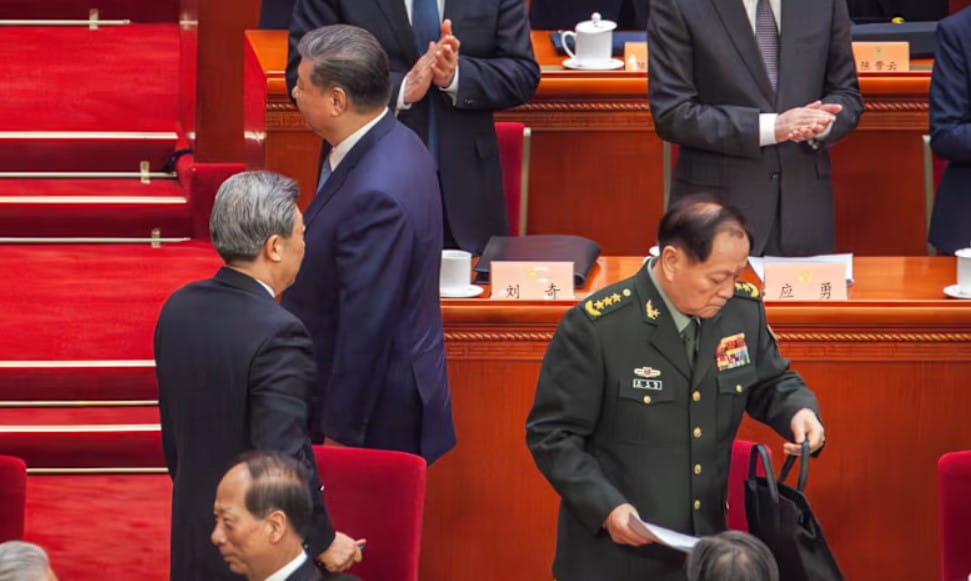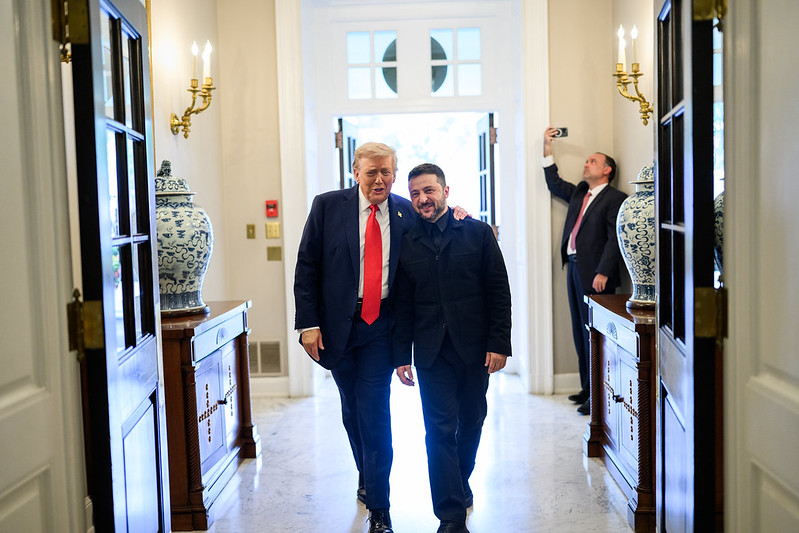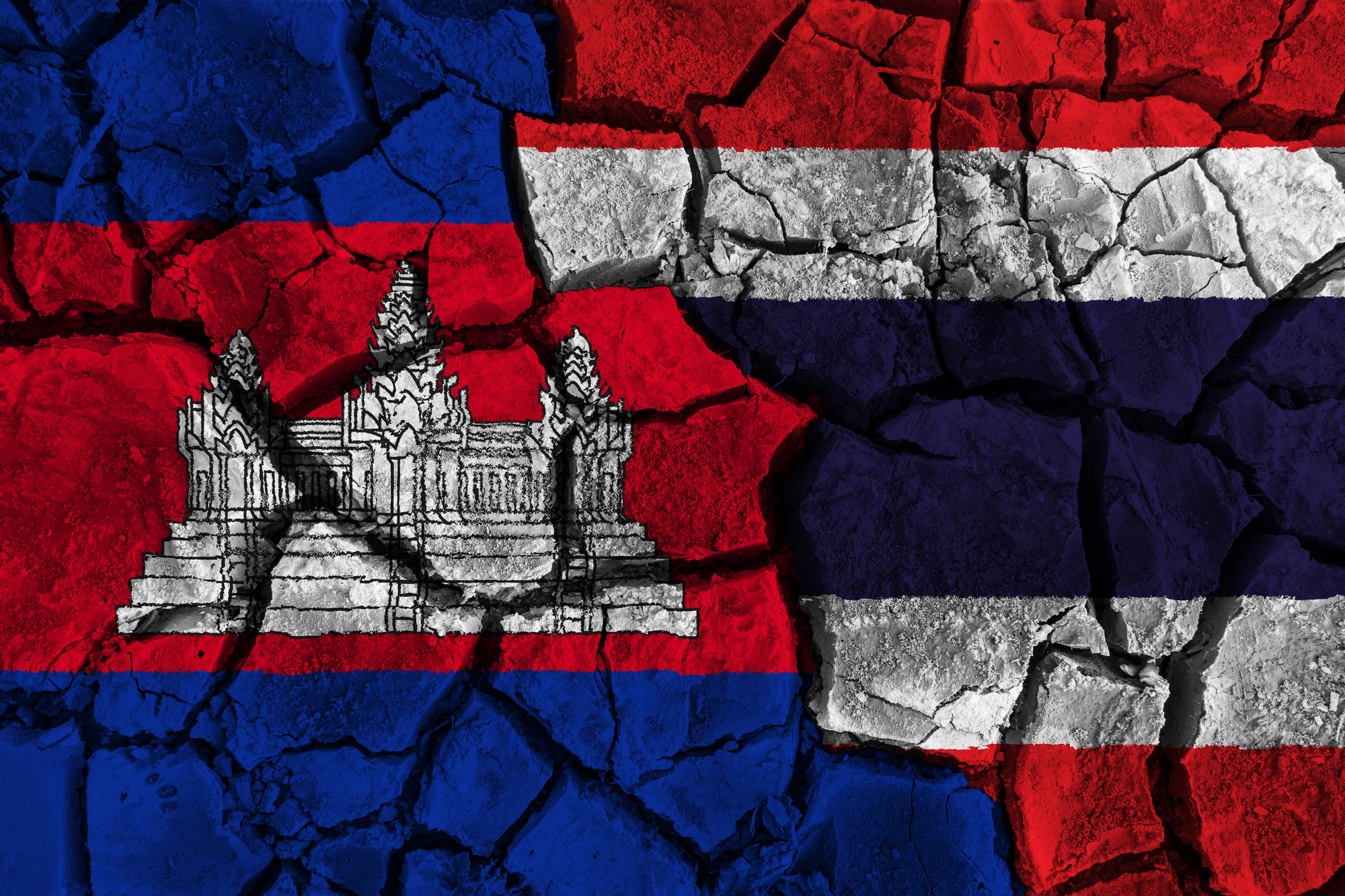The Biden-Xi meeting had set a positive tone, and that the U.S. had achieved a number of results while not ceding any ground. But observers also warned that the underlying tensions remained, and that frictions could erupt into significant crises. Picture source: PRC, The State Council Information Office, November 16, 2023, http://english.scio.gov.cn/topnews/2023-11/16/content_116819205_5.htm.
Prospects & Perspectives No. 63
The Biden-Xi Meeting at Woodside: What Was Said about Taiwan?
By Gerrit van der Wees
On November 15, on the sidelines of the annual APEC leadership summit, U.S. President Biden and his Chinese counterpart, Xi Jinping, met at the Filoli estate in Woodside, some 40 miles south of San Francisco.
The long-awaited and highly choreographed meeting took four hours, and reportedly resulted in agreements to stop the flow of precursors of the fentanyl drug from China to Mexico, the resumption of high-level military-to-military communication, and the start of discussions on regulating the integration of artificial intelligence in nuclear command and control systems.
The overall assessment in the media was that the meeting had set a positive tone, and that the U.S. had achieved a number of results while not ceding any ground. But observers also warned that the underlying tensions remained, and that frictions could erupt into significant crises.
While it was the U.S. that had long pushed for the meeting, during the past couple of months Beijing had made a U-turn, and had increasingly been eager for the meeting to happen in order to shore up its sagging economy, which saw foreign direct investments going negative for the first time in decades. This was also highlighted in a major essay by the well-known economist Nicholas Lardy of the Peterson Institute of International Economics.
The charm offensive also extended to the Chinese state media: according to several reports, there was a sudden change in tone around the summit, which shifted from a hostile stance to actively promoting Sino-American friendship.
But on Taiwan, little changed: According to several sources, Taiwan was discussed extensively during the meeting, with both sides strongly sticking to their respective positions. Below we analyze some key points coming out of the meeting.
What was discussed regarding Taiwan?
The official White House readout on the meeting contained the following text regarding Taiwan:
On Taiwan, President Biden emphasized that our one China policy has not changed and has been consistent across decades and administrations. He reiterated that the United States opposes any unilateral changes to the status quo from either side, that we expect cross-strait differences to be resolved by peaceful means, and that the world has an interest in peace and stability in the Taiwan Strait. He called for restraint in the PRC’s use of military activity in and around the Taiwan Strait.
The Chinese foreign ministry summarized the discussions on Taiwan as follows on their website:
President Xi Jinping elaborated on China’s principled position on the Taiwan question. He pointed out that the Taiwan question remains the most important and most sensitive issue in China-U.S. relations. China takes seriously the positive statements made by the United States in the Bali meeting. The U.S. side should take real actions to honor its commitment of not supporting “Taiwan independence”, stop arming Taiwan, and support China’s peaceful reunification. China will realize reunification, and this is unstoppable.
While most of this is basically a restatement of previous positions on both sides, there are some interesting “new” elements, which we will highlight in the following analysis.
From the US side: ‘restraint in the use of military activity’ …
By itself the reiteration of “our” One China Policy and the double emphasis on peaceful resolution have been part and parcel of U.S. policy for a long time, but the addition of “restraint in the PRC’s use of military activity in and around the Taiwan Strait” highlights the U.S. insistence on the need for PRC to step back from its threatening exercises and incursions across the Strait.
This was reportedly backed up by statements that the U.S. would continue to provide Taiwan with arms to defend itself, and maintain the U.S. capacity to deter any use of force in accordance with the commitments in the 1979 Taiwan Relations Act.
As if on cue, on 16 November 2023, U.S. Secretary of Defense Lloyd Austin reiterated Washington’s commitment, suggesting that the U.S. will continue to develop military ties with Taiwan even amid resumed dialogue with China. “With the Taiwan Relations Act, we are committed to doing what’s necessary to help Taiwan acquire the means to defend itself,” Austin told reporters in Jakarta, Indonesia, on the sidelines of the ASEAN Defense Ministers Plus conference.
… and ‘respect the electoral process’
In addition to making the general point of maintaining peace and stability, President Biden also emphasized that the PRC should respect the electoral process in Taiwan. This is particularly significant in view of the fact that Taiwan is presently going into the final weeks of its presidential and legislative elections, due to take place on January 13, 2024.
President Biden reportedly stated: “I made it clear: I didn't expect any interference, any at all,” highlighting the significance of the issue in the broader U.S.-China relationship.
It is important that Biden raised this point, as the PRC is going all out — through its military intimidations and propaganda disinformation campaign — to push the Taiwanese towards the Kuomintang, the party most friendly towards China.
According to recent reports, Beijing has worked hard to infiltrate Taiwan’s civil society — from media to the business community — in an effort to sow divisions and created tensions, which would undermine the ruling Democratic Progressive Party (DPP) party and its presidential candidate, Lai Ching-te.
From the Chinese side: ‘No plans to invade Taiwan’ ...
One of the Chinese statements most-quoted in the international press was that Xi was reported to have said: “I hear all these reports in the United States how we’re planning for military action [against Taiwan] in 2027 or 2035. There are no such plans, no one has talked to me about this.”
The problem of course is that this statement comes from the same Xi who promised then-President Obama in 2015 that there were no plans to militarize the islands in the South China Sea, but then went ahead with militarizing them at a rapid pace anyway.
Interesting is also that this statement by Xi was not reported in the state-run Xinhua News Agency, nor in any other official media outlets in China. They only focused on Xi’s statement that “Taiwan remains the most important and most sensitive issue” in U.S.-China relations, and that “China will realize reunification, and this is unstoppable.”
…and ‘support for peaceful unification’
A second statement that caught the headlines was the exchange in which Xi urged President Biden to “clearly demonstrate that the U.S. doesn’t support Taiwan independence, stop arming Taiwan, and support peaceful unification.”
According to U.S. Finance Secretary Janet Yellen (who attended the meeting), President Biden responded that “our policy remains unchanged from what it’s always been with respect to Taiwan.”
Another official stated that “President Biden responded very clearly that the long-standing position of the United States was ... determination to maintain peace and stability.” Xi then reportedly responded: “Look, peace is ... all well and good, but at some point we need to move towards resolution more generally,” the official said.
This response does show that Xi is moving the goalposts and isn’t satisfied with the status quo anymore.
Conclusions
It is thus essential that Taiwan and its supporters such as the United States, Japan, South Korea, and like-minded countries in Europe and elsewhere move quickly to stand by Taiwan, be even more supportive of Taiwan’s democracy, help provide adequate deterrence against China’s aggressive policies, and take further steps to welcome Taiwan as a full and equal member in the international community.
(Gerrit van der Wees is a former Dutch diplomat who teaches Taiwan history at George Mason University in Fairfax, Virginia, and US relations with East Asia at the George Washington University Elliott School for International Affairs in Washington.)

